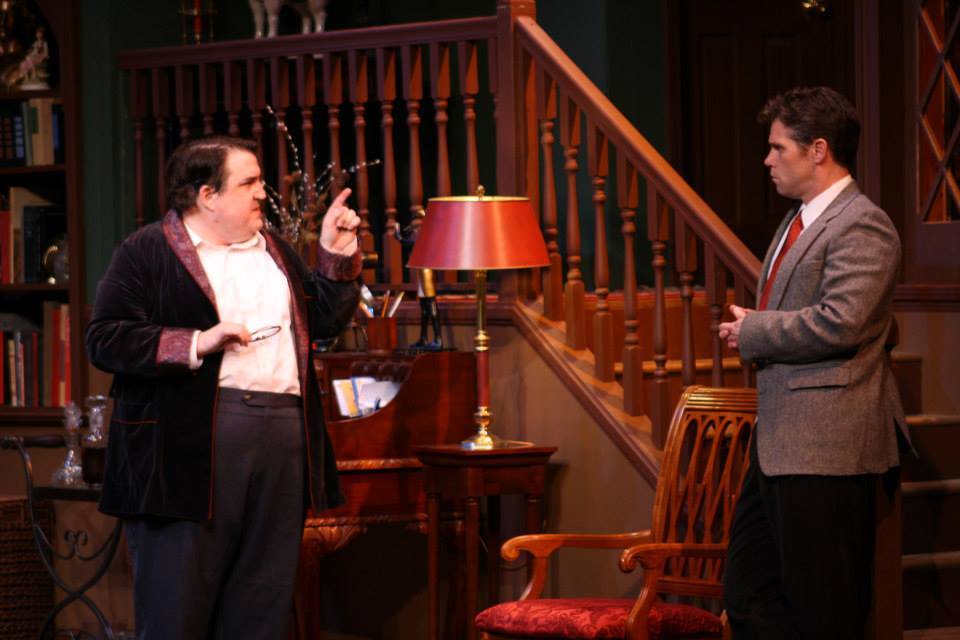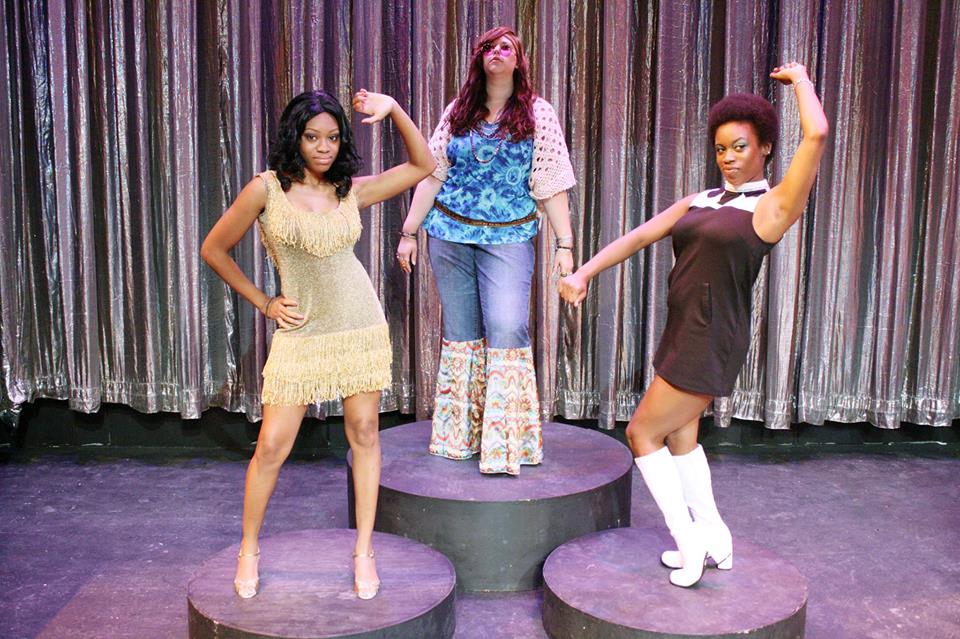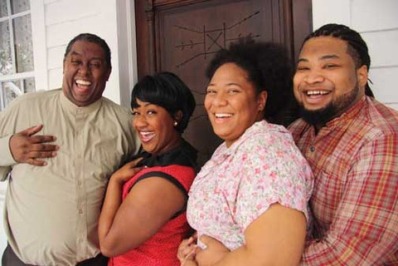 Tennessee Williams meets Steel Magnolias meets Charmed. That's how Crimes of the Heart might be pitched for a tv miniseries, as the power of three sisters reunited by family crisis enables them to navigate the murky swamp waters of Southern Gothic dysfunction. Beth Henley's dark comedy (or witty drama, depending on your perception) was all the rage in the early '80's, winning both the Pulitzer and the Critics' Circle Award for best play, receiving multiple nominations for Tony awards and Oscars (for its screen incarnation) and running for 535 performances on Broadway. In ensuing years it has become a staple of regional and community theatre, due to its small cast, simple set, and easily-accessible-themes of love, loss, conflict and reconciliation among family members. These themes, being universal, have been addressed in other works before and since, and as a result, much of the material seems awfully familiar, but director Jocelyn Sanders has chosen a talented cast for her revival currently running at Workshop Theatre, and they ensure a spirited and lively evening of fun on stage.
Tennessee Williams meets Steel Magnolias meets Charmed. That's how Crimes of the Heart might be pitched for a tv miniseries, as the power of three sisters reunited by family crisis enables them to navigate the murky swamp waters of Southern Gothic dysfunction. Beth Henley's dark comedy (or witty drama, depending on your perception) was all the rage in the early '80's, winning both the Pulitzer and the Critics' Circle Award for best play, receiving multiple nominations for Tony awards and Oscars (for its screen incarnation) and running for 535 performances on Broadway. In ensuing years it has become a staple of regional and community theatre, due to its small cast, simple set, and easily-accessible-themes of love, loss, conflict and reconciliation among family members. These themes, being universal, have been addressed in other works before and since, and as a result, much of the material seems awfully familiar, but director Jocelyn Sanders has chosen a talented cast for her revival currently running at Workshop Theatre, and they ensure a spirited and lively evening of fun on stage.
The Magrath sisters can't get a break. Their mother notoriously committed suicide when they were children, after their father abandoned them; the grandfather who raised them now clings to life in a hospital. Eldest sister Lenny (Allison Allgood) faces becoming a spinster as she turns 30 in small-town Mississippi in 1974, while free-spirited, scandalous middle sister Meg (Katie Mixon) is recovering from a failed show business career and a stay in a psychiatric hospital. Meg's return coincides with the arrest of youngest sister Babe (Erin Huiett) for the attempted murder of her abusive husband. As the play opens, we learn that even a beloved family horse was struck by lightning. This all sounds pretty grim, yet most of the show plays like a situation comedy, as if Tennessee Williams had penned a terribly wicked episode of Designing Women. Lenny is a more functional version of The Glass Menagerie's Laura or Summer and Smoke's Alma, with Meg and Babe high-strung variations on Blanche Dubois. (If in parallel time streams Blanche had either set out for California, or married a rich lawyer, only to give in to her penchant for young boytoys.) Mixon portrays Meg fairly seriously, allowing the laughs to come naturally with the lines, while Allgood goes for a more comic interpretation, while nevertheless revealing assorted wounds and vulnerabilities. Huiett faces the biggest challenge. In the notes I took during the performance, I see that at three different times I wrote "This is a woman on the edge." Huiett employs an array of vocal mannerisms and affectations to convey a person repressing deep emotions, and some work better than others. There's a detached, upwards lilt to much of her delivery, yet to me, it's indicative of her very tenuous grasp on stability. Babe chooses each word very carefully, fearful that she may reveal too much about the shooting and what led up to it, and more fearful that recalling certain events may send her off the deep end. It takes getting used to, but there is great power in her performance, especially in a riveting monologue midway through the show. Huiett admirably sustains tremendous highs and lows over the course of more than two and a half hours. (There is only one intermission, in between Acts 2 and 3, so be forewarned.)
Denise Pearman, George Dinsmore and Hans Boeschen (alternating in his role with Lee Williams) do good work as supporting characters; all function as plot devices to provide exposition, and to give one or more sisters a challenge or obstacle to overcome, yet each performer has some good bits. Dinsmore, as Meg's ex-boyfriend, becomes frustrated as he falls into familiar patterns of behavior; the actor flails his hand with unspoken emotion and powerlessness, giving a visual echo to the thoughts we know are within. Pearman is the sisters' nosy neighbor/catty cousin, and perfectly captures the parochialism of a small-town "Ladies' League" member. (Interestingly, her hair is far more beautiful than her nature. Bless her heart.) Boeschen is growing as an actor, and is convincing as a rookie lawyer determined to save Babe from jail, while trying to resist his attraction to her. Although as Huiett observed in a tv interview promoting the show, good luck with that.
Director Jocelyn Sanders has successfully helmed a number of big-cast, big-budget musicals in recent years, but is back in her comfort zone of character-centric drama, with plenty of opportunity to focus on characterization, line readings and mannerisms. At times the sisters, each histrionic and often hysterical, talk at once in rapid fire, but then Sanders will allow for a long and uncomfortable period of silence, to accentuate a particular emotion or realization. The entire cast does well with body language. Characters find themselves alone on stage, sometimes pacing frantically, or engaging in frenzied stage business, alternating with quiet and meaningful moments of reflection. The action takes place in the kitchen of the Magrath family home, with a finite number of places to locate the actors (a table, some chairs, the counter, a cot placed by a stairwell) yet Sanders keeps her cast moving rapidly yet naturally. She also creates some interesting stage pictures, as when Lenny, ostensibly the eldest and most grounded, rests her head in the lap of her younger - and ostensibly more troubled - sister, looking for comfort and reassurance.
Randy Strange's set is up to his usual level of excellence. A glimpse of a tree outside the kitchen window is well-lit by Barry Sparks's lighting design, which incorporates subtle shades of violet and blue to remind us of the time of day during different scenes. Baxter Engle's sound design incorporates a very believable ring for a busy kitchen telephone that thankfully sounds exactly as if it's ringing (instead of a sound effect coming from a speaker somewhere else.) I might add that on opening night the rings were timed perfectly, since nothing ruins a mood on stage like a phone still ringing after the actor has answered it. Costumes by Alexis Doktor are.... well, I can't say attractive, so let's just say they are quite authentic for the 1974 setting, and are exactly what these characters would think are attractive.
Literary aficionados will surely catch hints and traces of everyone from Faulkner to Eudora Welty and Carson McCullers, while theatre buffs will spot themes addressed in the plays above. Younger audience members will have seen similar plotlines in a dozen or more made-for-cable movies. Still Henley is working in a tradition, and her work, and in particular this work, has influenced a generation of successors and imitators. Were this the miniseries I imagined above, there would also be preceding scenes focusing on the Magraths' childhood years, and a conclusion where we learn if Babe prevails in court, if Lenny finds a "fella," and if Meg can ever pull it together. Instead, the play ends in media res, with the assurance that the reunited family unit will somehow find the strength to prevail. Which is almost disappointing, but I thought about the implications over the weekend, and realized the bigger message. As each parental figure leaves, the Magraths' lives slowly unravel, and each sister grabs at some possible escape. Had they stayed together, Babe might never have ended in a bad marriage, or at least might have found the strength to leave it sooner. Lenny seems quite confident and happy when her sisters are around. Even Meg, who provides most of the liveliness that keeps the family unit going, might make fewer bad choices if she were secure in the knowledge that her (remaining) family loves her. Indeed, the implication is that the power of three together is more than the sum of its parts. When the sisters laugh and giggle and gossip together, their problems seem smaller somehow, and easy to overcome. None of that would succeed, however, without the talent of cast and director working in concert to bring out the nuances and themes within the text.
Whether by design or fortunate coincidence, Workshop is revisiting some of the more important plays of the last few decades this season, each representing a particular genre. Last summer's Doctor Dolittle was a classic tale for small children, while Beehive was a musical revue featuring girl groups from the 60's. Sleuth was a male-centric, sophisticated comic thriller, and here Crimes of the Heart represents female-centric theatre that addresses....well.... affairs of the heart. Up next is a vintage but decidedly male-centric Neil Simon coming-of-age comedy, Biloxi Blues, and the season concludes with a wacky and broadly comic new musical straight from Broadway, Young Frankenstein. That's a nice and representative tour through the repertoire of modern theatre, and exactly what one expects from Workshop.
Crimes of the Heart runs through Sat. Jan. 25th, with a 3 PM matinee on Sunday the 19th. Call the box office at 803-799-6551 for more information, or visit http://www.workshoptheatre.com .
~ August Krickel

















